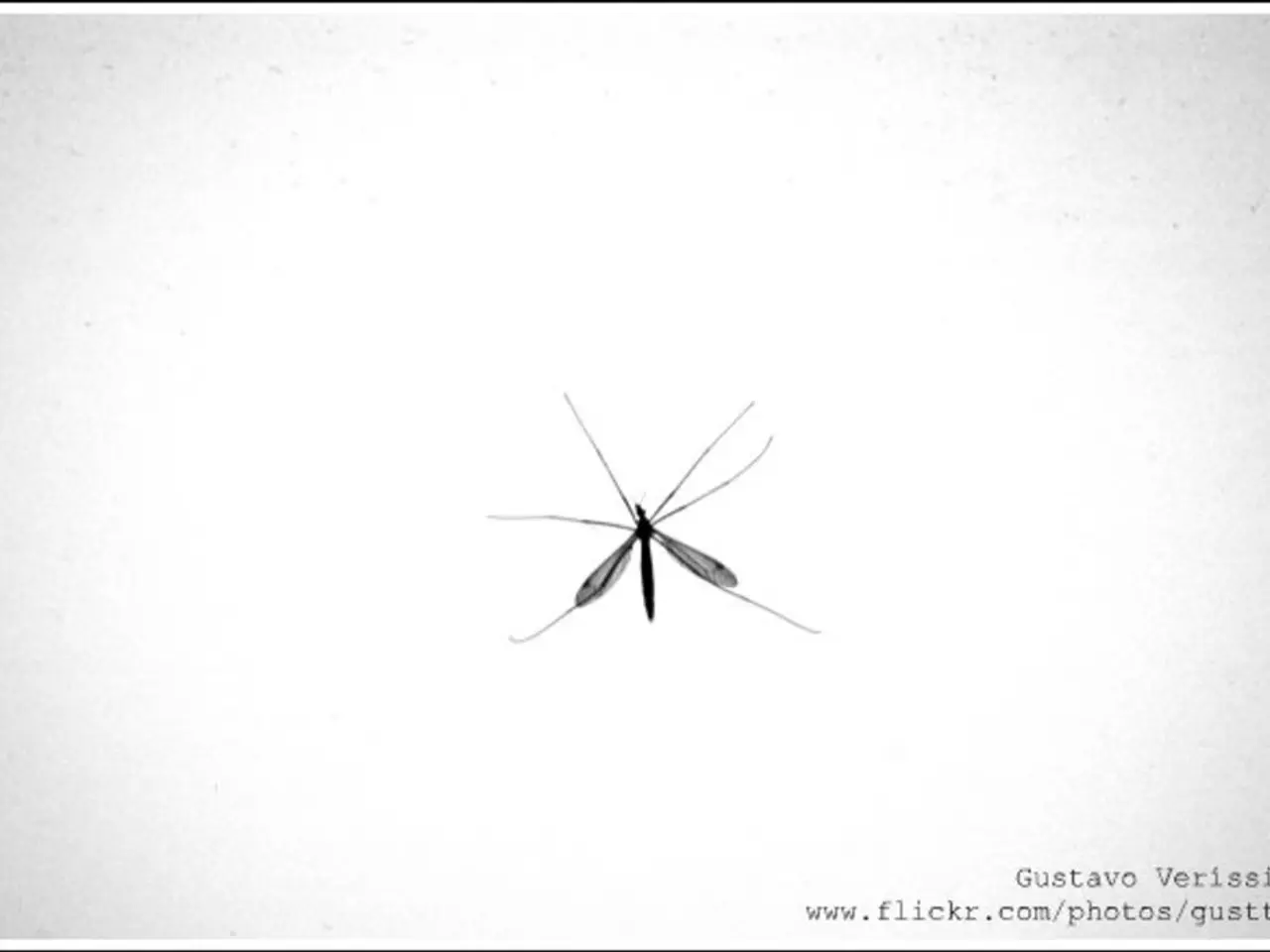One hundred cases of tiger mosquitoes suspected, confirmed
In the heart of Germany, Berlin is keeping a close eye on the Asian tiger mosquito (Aedes albopictus). The Mitte district office, which oversees tiger mosquito monitoring in the city, has reported an established population in Treptow-Köpenick, with smaller monitored occurrences in Pankow, Neukölln, and Charlottenburg-Wilmersdorf.
However, Lukas Murajda, who leads an eight-member team monitoring the situation, states that Berlin does not yet have an acute problem. The mosquitoes aren't spreading infections, and so far, no transmissions of diseases such as dengue, chikungunya, and Zika viruses have been reported in Germany.
The tiger mosquito is smaller than some native mosquito species and is active during the day. One key difference between common biting mosquitoes and tiger mosquitoes is their activity during the day. Tiger mosquitoes bite multiple times in succession.
Despite around 100 reported suspicion cases this year, the team has yet to catch any tiger mosquitoes in their traps set at several locations in Berlin. People are encouraged to report suspected tiger mosquito bites to the Mitte district office, and photos of mosquito specimens can be sent via email to [email protected].
Residents are also reminded that they can send mosquito specimens to the Mitte health office in a small container. The search for tiger mosquitoes in Berlin continues, with the team setting traps and monitoring them at locations with suspected cases.
It's important to note that the tiger mosquito season isn't over yet and could be active until late September. The mosquitoes are widespread in several regions of Germany, including Baden-Württemberg, the Rhine-Main region of Hesse and Rhineland-Palatinate, and also occur sporadically in Bavaria, Thuringia, Berlin, and North Rhine-Westphalia.
However, it's crucial not to panic. Murajda reassures that the team is on top of the situation and is working diligently to monitor and control any potential outbreaks. In the meantime, Berlin residents are encouraged to stay vigilant and report any suspected tiger mosquito activity to the Mitte district office.
Read also:
- Peptide YY (PYY): Exploring its Role in Appetite Suppression, Intestinal Health, and Cognitive Links
- Toddler Health: Rotavirus Signs, Origins, and Potential Complications
- Digestive issues and heart discomfort: Root causes and associated health conditions
- House Infernos: Deadly Hazards Surpassing the Flames








